10 Savvy Strategies for Paying Off Debt Fast, According to Finance Experts

Whether you’re feeling the weight of student loans or have struggled to pay off your credit cards, there are few worse feelings than being deep in debt. It’s an all-too common experience, and once you find yourself in that hole, it’s hard to dig your way out. But while achieving financial freedom can be difficult to do, it is certainly not impossible. You may just need a little help figuring out how to confront your debt head-on. That’s why we reached out to several finance experts to get their best tips for quickly turning around a challenging financial situation. Read on to discover the 10 savvy strategies they shared for paying off debt fast.
RELATED: 9 Surprising Things That Can Boost Your Credit Score, Finance Experts Say.
1
Use the debt snowball method.

If you’re serious about paying off your debt, “developing a repayment plan is important,” according to Scott Nelson, debt expert and founder of MoneyNerd.
“This can help you to both make progress and also to motivate yourself along the way,” he explains.
One of the most common methods used for repayment plans is the debt snowball method, which is where you “start by paying off your smallest debt first, while making minimum payments on your larger debts,” Shinobu Hindert, certified financial planner and author of Investing Is Your Superpower, tells Best Life.
“Once that smallest debt is cleared, you roll that payment into the next smallest debt, and so on,” she shares. “This strategy gives you quick wins that build momentum. By knocking out smaller debts first, you get a psychological boost that keeps you motivated and on track. It’s like conquering mini-battles on your way to winning the war against debt.”
2
Or try the debt avalanche method.
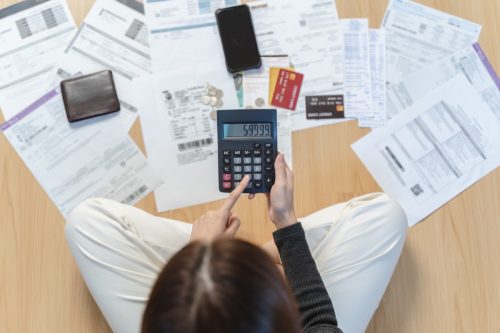
Another popular choice for repayment plans is the debt avalanche method.
“With this strategy, you focus on paying off debts with the highest interest rates first, while continuing to make minimum payments on the rest,” Hindert explains. “After the highest interest debt is paid off, tackle the next highest.”
Not sure which method to choose? Nelson suggests people to go with the strategy that suits their style more, as both have their advantages and disadvantages. For example, “despite the avalanche method being more effective, it’s actually less motivating as you don’t clear off individual debts as fast,” he cautions.
3
Consider a balance transfer credit card.
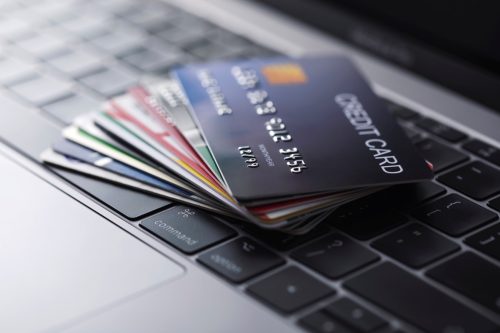
You might want to consider moving your debt to a balance transfer credit card. This involves transferring any debt from high-interest credit cards to a new card that “offers a low or 0 percent introductory interest rate for a set period,” according to Hindert.
“Lower interest means more of your payments go towards the principal balance, helping you pay off the debt faster,” she explains. “If you have good credit and can get these offers, it’s like giving yourself a financial boost, reducing the burden of high-interest rates.”
RELATED: 5 Times You Should Cancel a Credit Card, According to Financial Experts.
4
Check out your debt consolidation loan options.
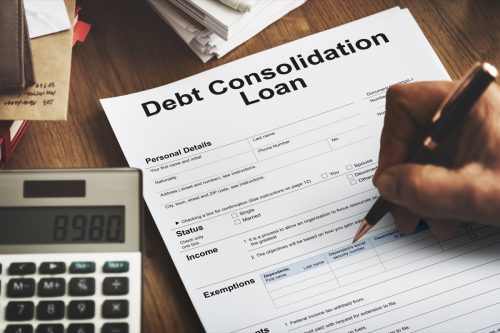
If you have multiple debts to pay off, you may want to consider debt consolidation loans as well. Taking out this type of personal loan can help you consolidate your debts “into a single, more manageable payment with a potentially lower interest rate,” Hindert says.
“Simplifying multiple payments into one makes it easier to manage your debt, and a lower interest rate can reduce your overall costs,” she notes. “It’s like combining your forces to strengthen your attack against debt.”
As with most loans, your ability to get approved for a debt consolidation loan will usually depend on your credit score. The minimum score needed for this type of loan typically ranges from 580 to the mid-600s, depending on the lender, MarketWatch reports.
5
Increase your income.
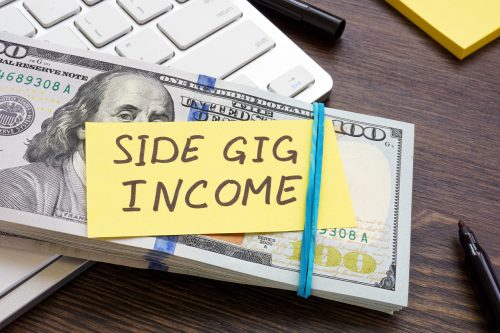
Trying to open new credit cards or take out a loan may seem too overwhelming for someone who is already in a lot of debt. If that’s the case, a different strategy is to increase your income. Some of the ways you can do this include “picking up side jobs, freelancing, or negotiating for a raise at your current job,” Hindert suggests.
“Extra income can be a game-changer, giving you more firepower to pay down debt quickly,” she says. “It’s about leveraging every opportunity to supercharge your debt repayment plan.”
6
Search for stuff you can sell.

But if you’re still struggling to increase your income, you may still be able to pick up some extra cash by lightly downsizing. Cherry Preston, PhD, financial therapist and accredited financial counselor, recommends doing a little house cleaning and selling off any medium- to high-ticket items you own.
“Perhaps it’s a food mixer you never use, gaming systems, duplicate electronic devices, power tools, or furniture—whatever can help in raising funds to put towards reducing debt,” Preston says. “Don’t be afraid to sell stuff to gain ground on your debt progress.”
7
Take advantage of any financial windfalls.
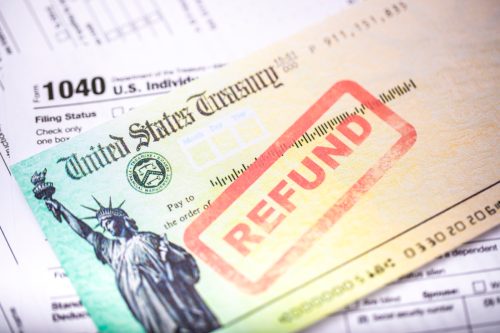
It’s a good idea to put any unexpected money you come across toward your debt as well. In the simplest terms, a financial windfall is “money you didn’t expect to receive, usually $1,000 or more,” according to Experian. As Hindert elaborates, examples of financial windfalls include tax refunds, bonuses, or gifts.
“Large, lump-sum payments can significantly reduce your debt principal, which lowers the interest you’ll pay over time,” she notes. “It’s like receiving an extra power boost that propels you closer to being debt-free.”
RELATED: 9 Best Side Hustle Ideas to Boost Your Income.
8
Create a useful budget.
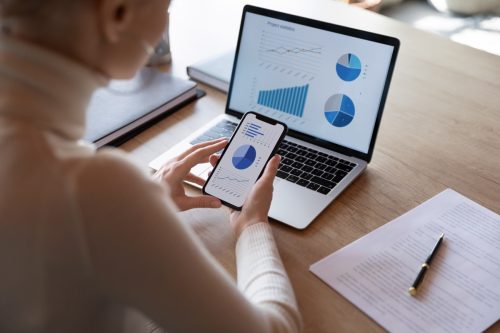
Don’t forget the importance of creating a budget for yourself if you’re trying to pay off debt. Doing so can help you figure out where you can cut your expenses, and allow you to redirect that money toward paying off your debts.
“Think of it as tightening your financial belt to free up resources for your debt-busting mission,” Hindert says.
In order to actually be useful, your budget should aim to lower your unnecessary spending and have you living below your means, Nelson explains.
“Pin the budget to your fridge or somewhere where you can see it daily,” he advises. “When you’re reminded daily of your budget, it will influence every day decisions that will positively influence your financial situation.”
9
Set up automatic payments.
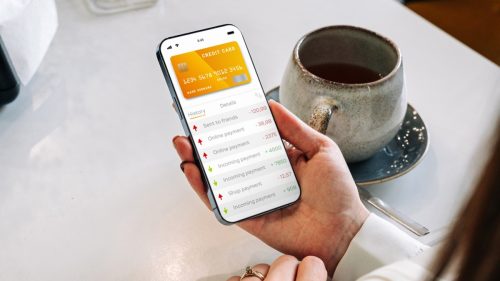
Setting up automatic payments is another smart strategy that can make your debt much more manageable—and help you avoid accumulating any more.
“This ensures you never miss a payment and consistently pay more than the minimum required,” Hindert says. “Automation keeps you disciplined and on track, reducing the risk of missed payments and potential fees.”
RELATED: 8 Best Budgeting Apps in 2024, Finance Experts Say.
Seek out professional help.

If you’re not confident in your ability to implement any of these strategies, you might benefit from getting help on a more personal level instead. In this case, Hindert recommends reaching out to a credit counselor or financial advisor who can work with you to “create a customized debt repayment plan.”
“Professional advice offers personalized strategies and support, making your debt repayment journey more efficient and less stressful,” she shares. “It’s like having a seasoned mentor guiding you through the complexities of debt repayment, ensuring you stay on the right path.”
Best Life offers the most up-to-date financial information from top experts and the latest news and research, but our content is not meant to be a substitute for professional guidance. When it comes to the money you’re spending, saving, or investing, always consult your financial advisor directly.